Filter by
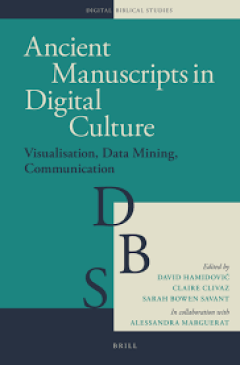
Ancient Manuscripts in Digital Culture : Visualisation, Data Mining, Communic…
Ancient Manuscripts in Digital Culture presents an overview of the digital turn in Ancient Jewish and Christian manuscripts visualisation, data mining and communication. Edited by David Hamidović, Claire Clivaz and Sarah Bowen Savant, it gathers together the contributions of seventeen scholars involved in Biblical, Early Jewish and Christian studies. The volume attests to the spreading of digi…
- Edition
- -
- ISBN/ISSN
- 9789004399297
- Collation
- xvi, 284 halaman
- Series Title
- Digital Biblical Studies, Volume: 3
- Call Number
- 800 ANC
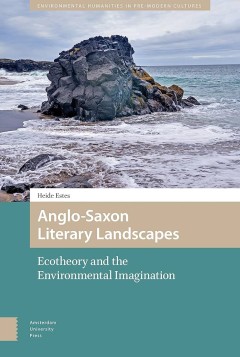
Anglo-Saxon Literary Landscapes : Ecotheory and the Environmental Imagination
Literary scholars have traditionally understood landscapes, whether natural or manmade, as metaphors for humanity instead of concrete settings for people's actions. This book accepts the natural world as such by investigating how Anglo-Saxons interacted with and conceived of their lived environments. Examining Old English poems, such as Beowulf and Judith, as well as descriptions of natural eve…
- Edition
- -
- ISBN/ISSN
- 9789048528387
- Collation
- 208 halaman
- Series Title
- Environmental Humanities in Pre-modern Cultures
- Call Number
- 800 EST a
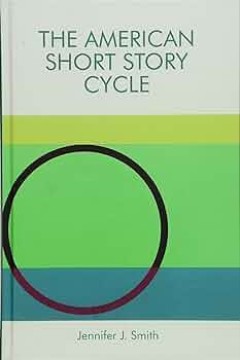
The American Short Story Cycle
The American Short Story Cycle shows the roots of modernism and postmodernism winds through the short story cycle. Reviewers ranging from the The New York Times to Amazon do not know what to call books like Jennifer Egan's A Visit from the Goon Squad or Jhumpa Lahiri's Unaccustomed Earth. Why do such popular and acclaimed books spark debates about what they are and how they should be read? The …
- Edition
- -
- ISBN/ISSN
- 9781474423946
- Collation
- 208 halaman
- Series Title
- -
- Call Number
- 800 SMI a
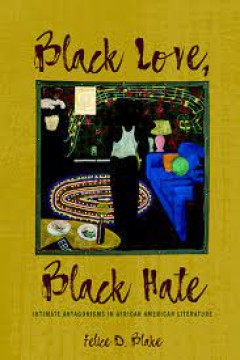
Black Love, Black Hate
Felice D. Blake's Black Love, Black Hate: Intimate Antagonisms in African American Literature highlights the pervasive representations of intraracial deceptions, cruelties, and contempt in Black literature. Literary criticism has tended to focus on Black solidarity and the ways that a racially linked fate has compelled Black people to counter notions of Black inferiority with unified notions of…
- Edition
- -
- ISBN/ISSN
- 9780814213865
- Collation
- -
- Series Title
- -
- Call Number
- 800 BLA b
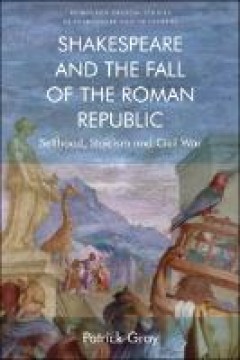
Shakespeare and the Fall of the Roman Republic
Explores Shakespeare's representation of the failure of democracy in ancient Rome This book introduces Shakespeare as a historian of ancient Rome alongside figures such as Sallust, Cicero, St Augustine, Machiavelli, Gibbon, Hegel and Nietzsche. It considers Shakespeare’s place in the history of concepts of selfhood and reflects on his sympathy for Christianity, in light of his reception of me…
- Edition
- -
- ISBN/ISSN
- 9781474427487
- Collation
- -
- Series Title
- -
- Call Number
- -
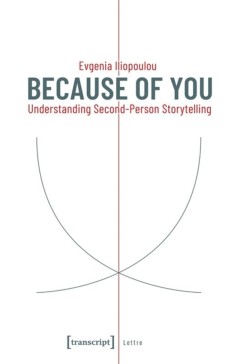
Because of You : Understanding Second-Person Storytelling
Second-person storytelling is a continually present and diverse technique in the history of literature that appears only once in the oeuvre of an author. Based on key narratives of the post-war period, Evgenia Iliopoulou approaches the phenomenon in an inductive way, starting out from the essentials of grammar and rhetoric, and aims to improve the general understanding of second-person narrativ…
- Edition
- -
- ISBN/ISSN
- 9783839445372
- Collation
- 256 halaman
- Series Title
- -
- Call Number
- 800 ILI b
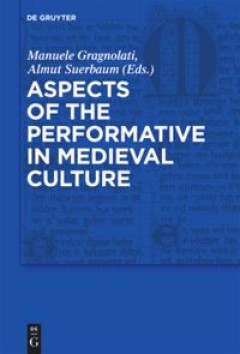
Aspects of the Performative in Medieval Culture
The volume assesses performative structures within a variety of medieval forms of textuality, from vernacular literature to records of parliamentary proceedings, from prayer books to musical composition. Three issues are central to the volume:the role of ritual speech acts the way in which authorship can be seen as created within medieval texts rather than as a given category finally, phenomena…
- Edition
- -
- ISBN/ISSN
- 9783110222463
- Collation
- -
- Series Title
- Trends in Medieval Philology volume 18
- Call Number
- 800 ASP

Aspects of Poverty and Inequality in Cameroon
Poverty and inequality remain extremely high for Cameroon despite improvements in poverty figures between 1996 and 2001. To understand the dynamics of poverty and inequality between 1996 and 2001, this book develops a poverty and inequality profile, investigates the sources of inequality along spatial lines and simulates some policies which could be used in the reduction of poverty and inequali…
- Edition
- -
- ISBN/ISSN
- 9783631595350
- Collation
- 171 halaman
- Series Title
- -
- Call Number
- 362 KUM a
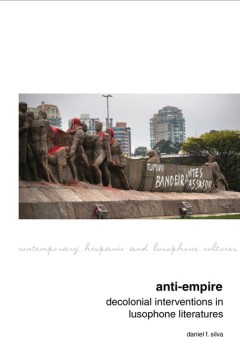
Anti-Empire : Decolonial Interventions in Lusophone Literatures
Anti-Empire explores how different writers across Lusophone spaces have engaged with imperial and colonial power at its various levels of domination, while imagining alternatives to dominant discourses pertaining to race, ethnicity, culture, gender, sexuality, and class. Guided by a theoretically eclectic approach ranging from Psychoanalysis, Deconstruction, Postcolonial Theory, Queer Theory, a…
- Edition
- -
- ISBN/ISSN
- 9781786941008
- Collation
- -
- Series Title
- -
- Call Number
- 800 SIL a
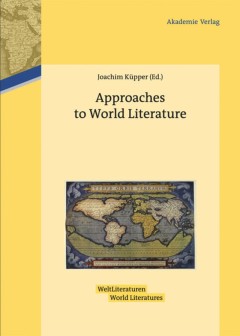
Approaches to World Literature
The present volume introduces new considerations on the topic of "World Literature", penned by leading representatives of the discipline from the United States, India, Japan, the Middle East, England, France and Germany. The essays revolve around the question of what, specifically in today's rapidly globalizing world, may be the productive implications of the concept of World Literature, which …
- Edition
- -
- ISBN/ISSN
- 9783050062716
- Collation
- 180 halaman
- Series Title
- WeltLiteraturen / World Literatures volume 1
- Call Number
- 800 APP
 Computer Science, Information & General Works
Computer Science, Information & General Works  Philosophy & Psychology
Philosophy & Psychology  Religion
Religion  Social Sciences
Social Sciences  Language
Language  Pure Science
Pure Science  Applied Sciences
Applied Sciences  Art & Recreation
Art & Recreation  Literature
Literature  History & Geography
History & Geography